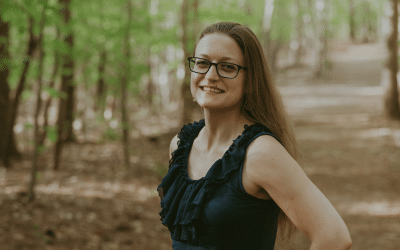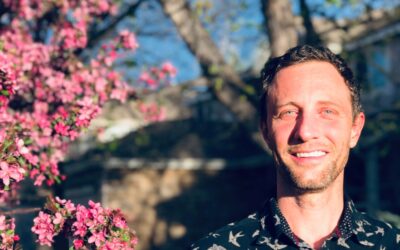Candace Oglesby, LCPC
Over the last several years of trainings, we have been gifted with the relationship of so many accomplished, passionate and caring individuals. Last year we had the honor of hosting Candace Oglesby, LCPC. Candace attended our August 2021 KAP training, and brought what she learned into her psychotherapy practice in Maryland.
In addition, Candace has established a consulting practice to help businesses and individuals operate from an anti-oppressive lens that embraces justice, equity, diversity, and inclusion within the mental health treatment sphere.
Tell us a little about your psychotherapy practice and your vision for the world.
As an African-American psychotherapist, who works with culturally diverse populations, it is my vision that every individual despite race, religion, sexual orientation, and social class have access to high quality mental health care.
I am a mental health practitioner at Gladstone Psychiatry and Wellness, which is an outpatient mental health group private practice located in Columbia, Maryland. At Gladstone we service culturally diverse individuals with substance use, psychiatric, and trauma related mental health symptoms. We believe in a multidisciplinary team approach, as our group private practice is made up of therapists, nurse practitioners, and psychiatrists.
I am certified in Eye Movement Desensitization Reprocess (EMDR) and Psychedelic Assisted Therapy. I am also a trained Internal Family Systems (IFS) practitioner. Currently within my practice, I have found a way to combine Ketamine Assisted Therapy (KAP) with EMDR and IFS. This combination of therapy has helped clients achieve change in weeks that would normally be achieved within years. My hope is that clinicians of color can have accessibility to more affordable psychedelic assisted therapy training and oppressed populations have more access to this healing medicine as a modality of mental health treatment.
Not only am I a psychotherapist in group private practice, but I am also the CEO and founder of Jurnee Mental Health Consulting, LLC. Jurnee Mental Health Consulting provides mental health consulting to individuals and businesses. Within my consulting business I have the opportunity to help businesses and individuals operate from an anti-oppressive lens that embraces justice, equity, diversity, and inclusion when it pertains to providing mental health treatment.
What do you appreciate most about using KAP as a modality with your clients?
There is so much that I appreciate about using KAP as a modality with my clients. KAP has allowed my training as a therapist to collide with the purpose of helping those heal who have experienced immense suffering. Most clients who come to me for therapy are clients who have experienced complex trauma with little relief from psychotropic medications and traditional therapy. When I can offer them KAP, there is an opportunity for them to experience a joy and happiness that is indescribable. As one of my clients most recently stated, “I am a better mother to my children; I’m present, able to consistently hold boundaries, and feed them well.” In my short experience of providing KAP, it has a nice way of softening the default mode network and allowing clients to heal the most vulnerable parts of themselves. Yes, the work can be challenging and intense at times, but at the end of the day, clients can say it was their infinite wisdom that provided them with the tools to heal.
What is one piece of advice you would offer for a provider interested in starting to practice KAP?
As I sit and reflect on my own road to becoming a healer, I would offer the invitation to those interested in starting to practice KAP to explore the reasons and intentions behind wanting to become a psychedelic practitioner. Not everyone who calls themselves a healer has pure intentions. We are in the renaissance phase as it pertains to these healing medicines making their way back into mainstream, and we as practitioners have a responsibility to not further inflict pain or cause re-traumatization. Seek training from those who have reputable reputations and are practicing cultural humility, consult with peers or mentors who are safely implementing these healing medicines and doing their own work, and stay curious about how you can continue to support clients to become the healthiest versions of themselves.




